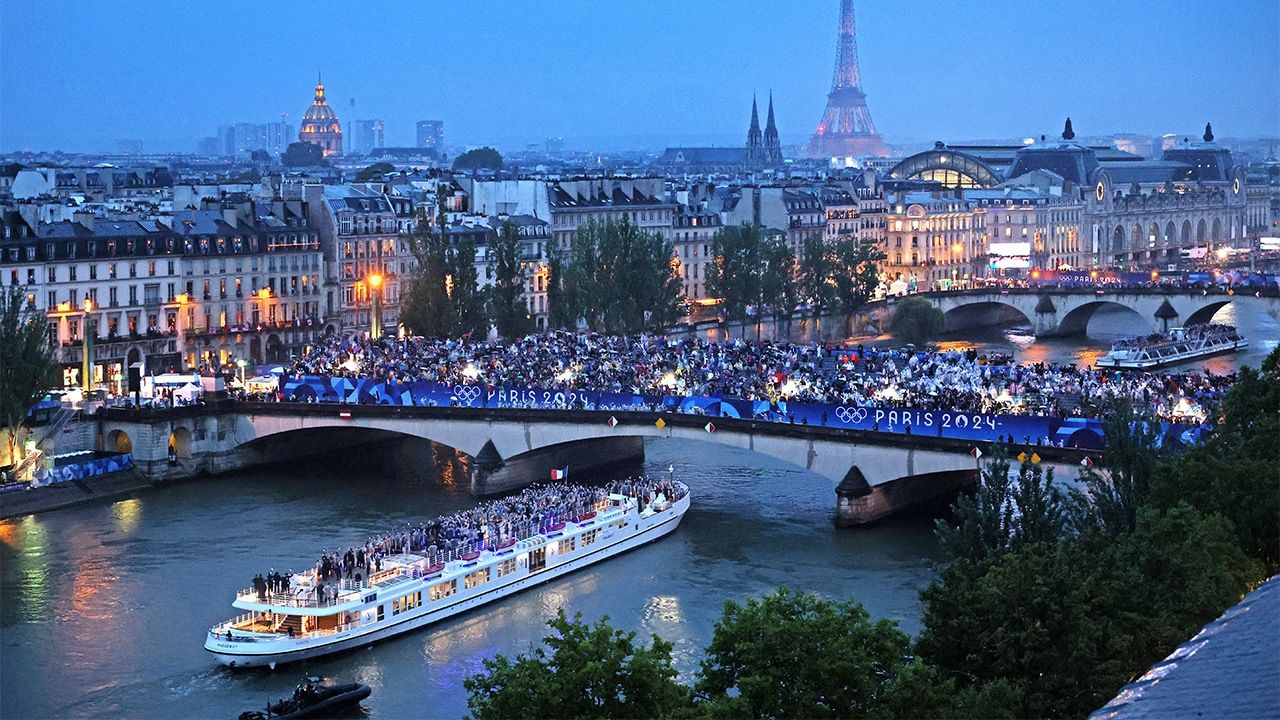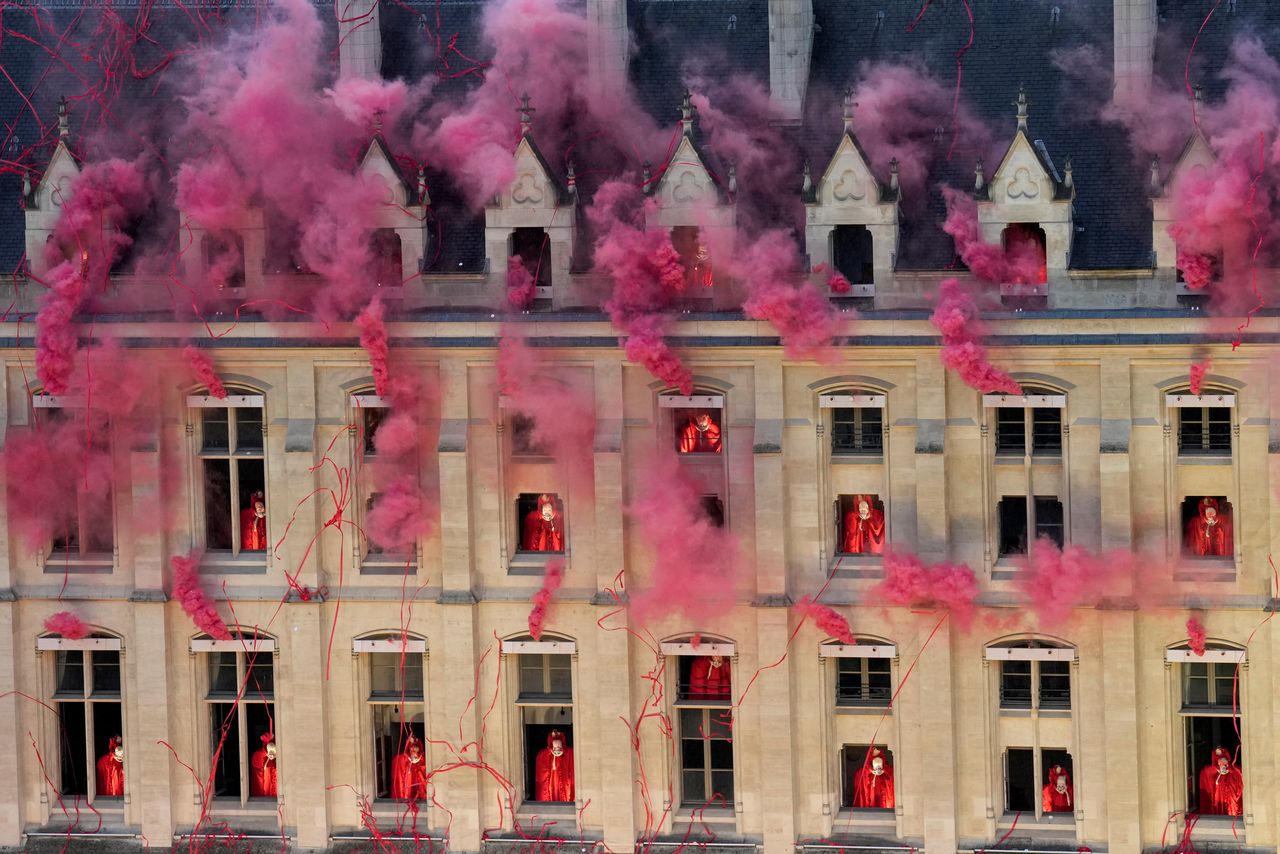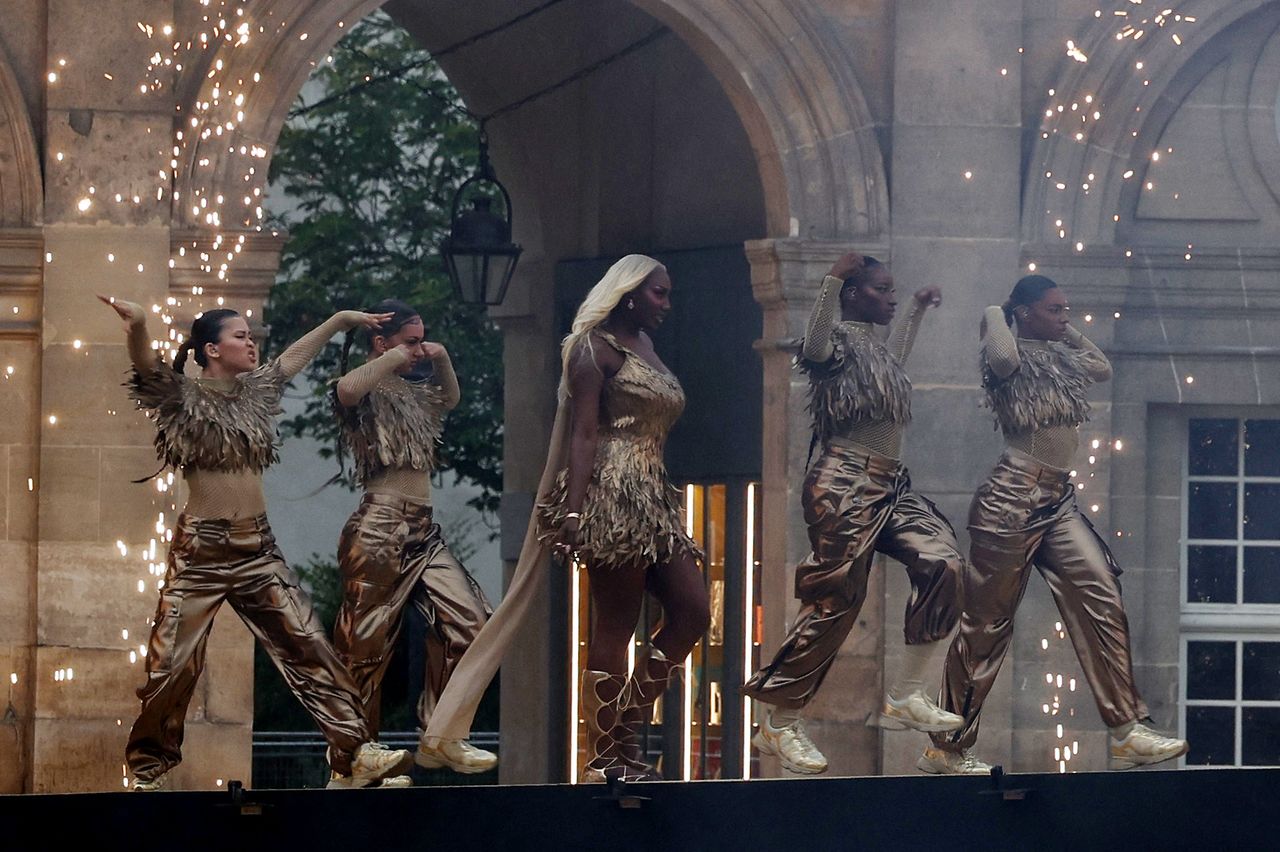
Innovative Paris Olympics Opening Ceremony a Testament to Doing Things the “French Way”
Sports World- English
- 日本語
- 简体字
- 繁體字
- Français
- Español
- العربية
- Русский
Out of the Stadium, Into the City
Amid the rain, a parade of boats carrying 6,800 athletes traveled around six kilometers west along the River Seine from the Pont d’Austerlitz in eastern Paris to the Pont d’Iéna, by the Eiffel Tower. Along the way, songs, dances and other performances highlighted French history, cultural heritage, arts, historical figures, and fashion, unfolding like a picture scroll.
When the Paris 2024 Organizing Committee, headed by Tony Estanguet, announced plans at the end of the Tokyo games for the Olympic opening ceremony parade on the Seine, they met with a wave of opposition and calls for a rethink.
One consideration was terrorism. If security is difficult enough for a closed stadium, it is even harder on the open banks of a river. It was thought, for example, snipers might be able to instigate a terror attack from the windows of buildings along the route. Another issue was the huge impact on the lives of residents. Including the time for preparation, many cafés, bookstores, and other stores would have to close down for a long period. And with events taking place in historic buildings, parks, and a public square, there was the risk of the city descending into chaos for the duration of the games.
However, to go ahead despite such obstacles is an inherently French approach. With a dislike for conformism, slavish precedent, and imitation, France constantly aspires to new ways of doing things.
In diplomacy too, France is not averse to going against the flow, even if it has been established by general agreement, in order to achieve a breakthrough. Adherence to the “French way” may meet with American or British sneering, but France does not care. Sometimes it is successful and sometimes there are setbacks.
Remembering the Revolution
Thus, the French way was on display with the innovation of holding an opening ceremony across the city rather than the stadium ceremony that has come to be seen as perfectly natural since the first of the modern Olympics. It succeeded superbly, in combination with a magnificent production.
Guillaume Diop, the first black principal dancer in the Paris Opera Ballet, performed on the roof of the historic city hall, overlooking the Seine. Lady Gaga appeared in a cabaret-inspired feathered outfit on right bank steps for a song-and-dance number, belting out lyrics in French. Further along the river, some 85 Moulin Rouge cancan dancers kicked in unison and raised their skirts in response to the US singer.

Women in dresses representing Marie Antoinette holding their own severed heads in their hands sparked much debate. Opening ceremony photograph from July 26, 2024. (© Reuters)
Marie Antoinette, the queen consort deposed in the French Revolution lived out her final days before execution in the Conciergerie prison. From this historic left bank building, multiple figures appeared representing the queen with her severed head in her hands, as the revolution was recreated with lights and confetti. An opera singer performed a song from French composer Georges Bizet’s Carmen.
A little further along the river, another opera singer sang “La Marseillaise” from the roof of the Grand Palais, which was constructed for the 1900 Paris Exposition. As part of efforts to spread events out, the Grand Palais is the venue for fencing and taekwondo.
Despite the increasingly heavy rain, the light and sounds of Paris at dusk further heightened the excitement. French-Malian singer Aya Nakamura, who had faced rumors and racist comments before her appearance, performed her own songs and one by chanson master Charles Aznavour, accompanied by the orchestra of the Republican National Guard. The combination of Nakamura’s avant-garde and the orchestra’s dignity won high acclaim. This kind of bold experimentation is very French.

Aya Nakamura (center) performs at the opening ceremony in Paris on July 26, 2024. (© Reuters)
Bronze statues of women who were major contributors to France emerged from the river in a first-rate display. The 10 statues included Simone Veil who survived the Auschwitz concentration camp and became a politician who fought for the legalization of abortion. The statues, which will be installed around Paris, are symbolic of efforts to redress the gender imbalance, as there are relatively few statues representing women in the city.
Pride in Human Rights
All of the performances incorporated messages of history, tradition, culture, solidarity, tolerance and diversity, with an all-encompassing theme of the French Revolution ideals of liberté, égalité, and fraternité (liberty, equality, and fraternity).
Historically, France had a burning sense of its mission toward the world. From the time of absolute monarchy in the seventeenth century, it had an aspiration of conveying its great culture far and wide, and bringing civilization to primitive lands. It established colonies in North America, Africa, and the Middle East, where it strove to impose its language and culture.
Following the French Revolution of 1789, when Napoleon came to power, he spread the ideals of liberty, equality, and fraternity to neighboring countries. This worked to bring down the feudal system in many cases, and was a step toward the unification of new states. However, history shows that it also awoke their national consciousness, spurring them to rebel against France, which led to Napoleon’s downfall.
Even today, France takes pride in having been the first country to establish a principle of universal human rights, based on its revolutionary ideals. The Olympics opening ceremony, viewed across the globe, was a perfect opportunity to reiterate the importance of human rights in today’s world.
As a laser show lit up the Eiffel Tower, Estanguet spoke at the Trocadéro square: “Even though the games cannot solve every problem . . . tonight you have reminded us how beautiful humanity is when we come together.” It was a message of strength through unity.
In the climax, Canadian singer Celine Dion, who is currently battling stiff-person syndrome, gave an emotional performance of Édith Piaf’s “La Vie en rose” from a special Eiffel Tower stage. The inclusion of foreign artists Dion and Lady Gaga in the ceremony provided a sense of balance to avoid a feeling of French triumphalism.
A Diminished Macron
The success of the opening ceremony is a testament to the organizing committee’s determination not to shrink in the face of terrorism, remaining vigilant while confidently putting on the best show it could. This can be seen as the French way.
German Chancellor Olaf Scholz, British Prime Minister Keir Starmer, and US First Lady Jill Biden were among those attending the ceremony. However, despite delivering the speech declaring the games open, French President Emmanuel Macron was a diminished presence. As conflict continues in Ukraine and the Middle East, he had called for an Olympic truce, but this went by unheard.
Macron has reached a dead end in both domestic and international affairs, which has slashed his influence. In domestic politics particularly, his decisive dissolution of the lower house and calling of a general election resulted in a massive drop in seats for his party. By the time of the opening ceremony three weeks later, he still had not named a new prime minister. While he will take up the issue again after the Olympics, hosting the games is unlikely to provide any tailwind.
Even so, the Olympics will have a legacy transcending politics. France may have become a middle power in terms of its national influence, but it is still a leader when it comes to soft power, as was demonstrated in the Paris opening ceremony. It was also a reminder of the depth of French history, culture, and art. France was once seen as part of old Europe, but the social diversity, innovation, and prescience of the ceremony dispelled that image.
The fresh charms of the country, embodied in the opening ceremony, must have many around the world thinking that they want to go to Paris, take a trip to France, or travel along the Seine.
(Originally published in Japanese on July 29, 2024. Banner photo: The Paris Olympics opening ceremony taking place on the Seine on July 26, 2024. © Reuters.)
